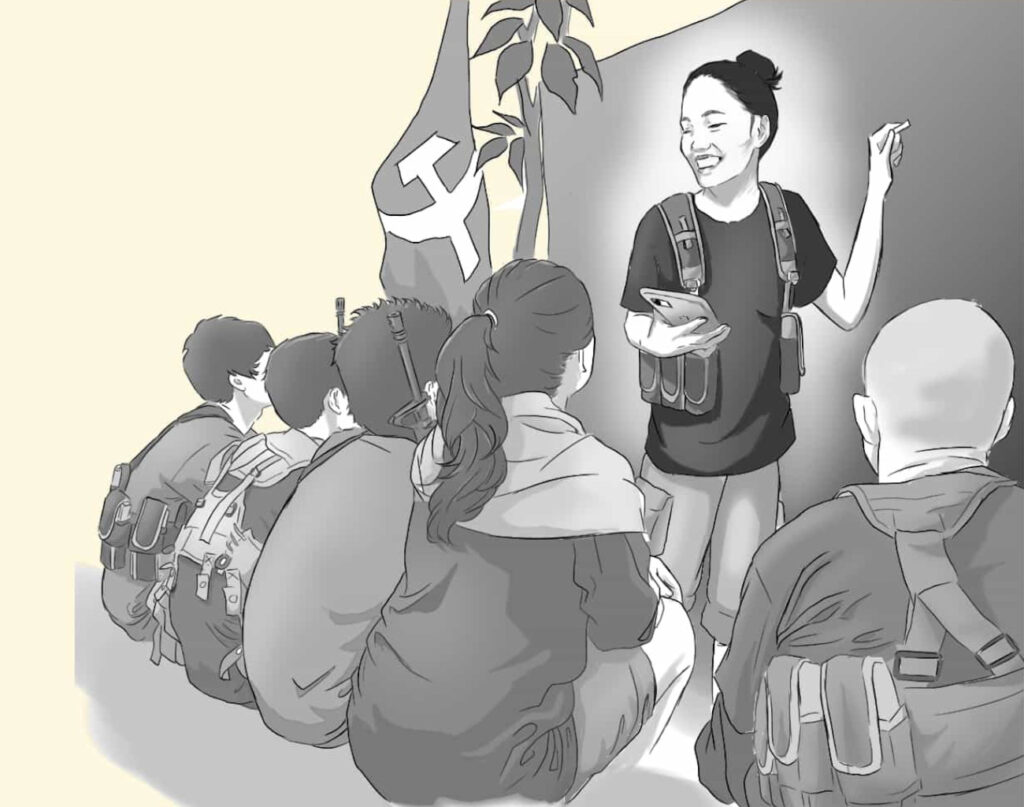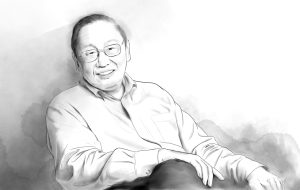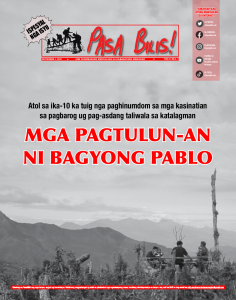Not Ma’am, but Kas

Not Ma’am, but Kas
by Ka Yagi
SOMEWHERE IN BUKIDNON—Jane breathed in the late September air as she wrapped up her topic. “It’s raining regularly now,” she observed, concern creasing her forehead. “We’d need to adjust our set-up to make sure the rain doesn’t interrupt the educational discussions.”
When we sat down for her interview, she casually said that apart from the mud, it felt like just another day in front of her students who stared at her, focused, thirsty to learn.
But today, as in the past year, her students were no longer little children with notebooks and pencils but comrades, Red fighters and peasants, with their rifles and eagerness to sharpen their understanding of Marxism-Leninism-Maoism. It was the last day of the NPA unit’s Basic Party Course near a peasant community in Bukidnon.
Jane joined the New Peoples’ Army in the middle of 2020 at the height of the Covid-19 pandemic, when most professional teachers like her decided to wait it out for the Duterte administration to get its act together and resolve the public health crisis. She chose the offbeat path, she knew, one borne out of her steel resolve to continue serving the people outside the confines of the classroom. An M16 rifle and a huge backpack now took the place of her lesson plans and shoulder bag. A far cry from her usual implements, we observed. “Yes, but that’s how it is,” she replied with a dimpled smile.
Jane, interrupted
Jane herself came from a middle peasant background, whose family, although hard-up, saw it fit to send her to college on a scholarship. She worked nights on a local bakeshop in Davao de Oro to finance her studies, living frugally and making ends meet one semester at a time. When she graduated, job offers were scarce so when a volunteer teaching position opened in a barangay school—with a monthly honorarium of only P4,000 and no benefits—she leapt at the chance to practice her vocation. “That became my life for almost six years.”
But the realities of the country’s dire educational situation and the peasantry’s woes were a constant interruption. She recounted the bittersweet first few months of teaching in a peasant and small-scale mining community; although the students and their parents welcomed her warmly, the school barely had any books, facilities or teaching materials.
Living with her pupils in the community, she became not just their teacher but their parent as well. “I laughed with them, cried with them, shared life stories both good and bad,” she mused. As a parent herself, she ached when she saw how her pupils’ fingers trembled when holding a pen or a pencil, perhaps due to fatigue from working in farms, mines, or plantations. Young as they were, her pupils became unpaid labor who assisted their families in order to help provide for their daily needs.
She knew how arduous a peasant’s life was. She knew how hard it was to till the land. It took a little over four months of constant work to raise corn and rice. Banana after a year, sugarcane after a year, coconut after five to seven years. And yet the amount of time and sweat was never tantamount to what those who till the land received after harvest. Add to this the perennial exploitation they suffer in the hands of their parasitic landlords, usurers and buyers.
In the peasant and mining community she taught in, Jane said the worst kind of interruption was perpetrated by the AFP’s militarization, which always included aerial bombings, combat operations and “community service programs” by the soldiers of the Armed Forces of the Philippines. “It really angered me that the parents were constantly being subjected to psywar and forced to attend so-called peace summits that coerced them to surrender as either NPA fighters or sympathizers,” she remembered. News of killings of peasant leaders and activists in their town woke her up at night sometimes.
When the pandemic hit, Jane herself interrupted her life of six years. “I decided to become a Red fighter,” she said, almost self-consciously.
Serving the people 2.0
“I’m still not used to calling myself a hukbo. Half the time, it escapes my notice,” she explained. “It’s the small things that make you realize you really are a Red fighter,” she said. How so?
“Like when the peasant masses, hard-up as they are, give us ten kilos of rice or several of their chickens. When we do medical services and the smiles on their faces seem like it means the world to them. Or when they simply invite us warmly into their houses, offer us coffee, boiled sweet potatoes and tell us their troubles. The little things. That’s what makes you realize you’re a Red fighter—the love of the masses for you.”
In the Red army, Jane says she is no longer just a teacher, but a student of the masses. “Education here is never one sided, learning is never stale. What’s more, learning about the world in order to change it is an active process. I find that the key is to humbly submit yourself to be molded by the people’s war.” She admits that she had to unlearn a lot of the deeply-ingrained misconceptions and habits of her past life as a teacher. That of someone who knows all the answers.
“It’s the jolt of reality—you have a lot to learn about the masses and the revolution. One time, I was with a team doing mass work, and we conversed with a farmer who did not get one year of formal education but taught me about semi-feudal exploitation in the most comprehensive way possible. I filled pages upon pages of notes!” she happily remembered.
Jane is also part of the instructors pool in her NPA unit where she actively heads the literacy and numeracy program. “In a way, I am still practicing my teaching vocation because some of the Lumad and peasant recruits do not know how to read or write. But I can say this is more rewarding because I’m not just teaching them their ABCs and 123s but helping them become better servants of the people.”
Jane hopes to remain a teacher and a student of the Red army and the masses in the years to come. She teaches and learn, from theory to practice and back again. She aspires to not just talk about the revolution, but to continue to wage it. “It takes a lot of patience, self-remolding through criticism and self-criticism, and a healthy dose of revolutionary optimism despite of difficulty and sacrifice.”
We asked not Ma’am but Kas Jane how she was able to find an NPA unit to join. Did they have a hotline, we prompted jokingly. “Oh, when you’re in the rural areas, they’re just around. Even with all the focused military operations, Red fighters are still able to visit communities and do organizing. You can’t keep the fish out of the pond, you know.”



